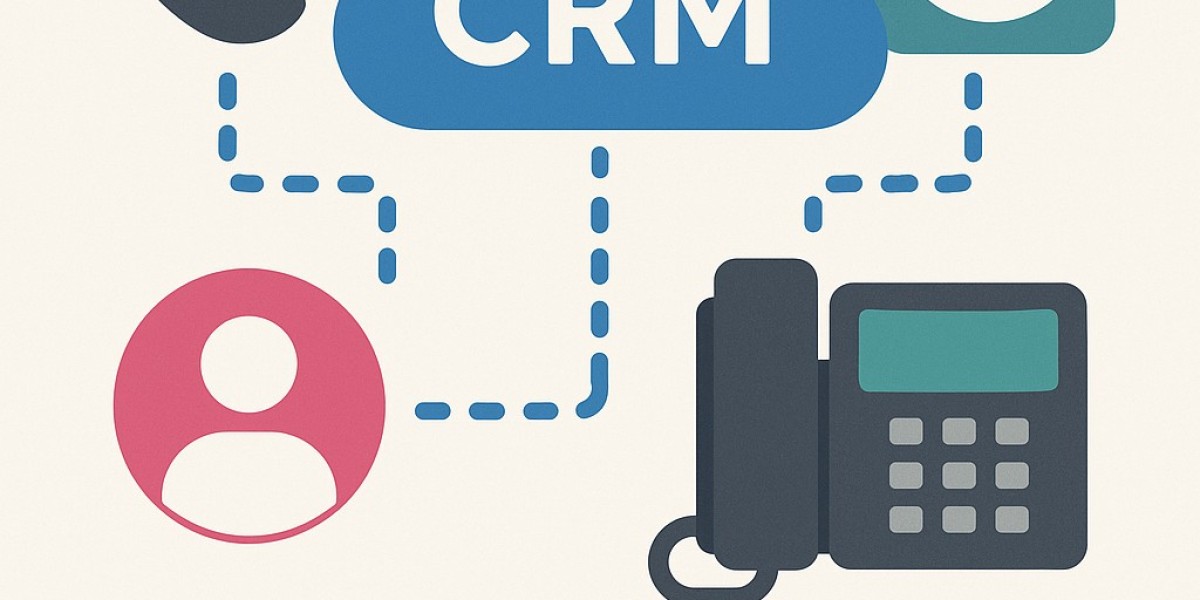In today’s fast-paced business environment, seamless communication and effective customer relationship management are key drivers of growth and efficiency. One powerful way to achieve both is through VoIP Crm integration. This integration combines Voice over Internet Protocol (VoIP) technology with Customer Relationship Management (CRM) systems, enabling businesses to manage calls and customer data within a single, unified platform. The result is a smarter, more efficient way to connect with customers, improve sales performance, and enhance support services.
What is VoIP CRM Integration?
VoIP CRM integration refers to the synchronization of a VoIP phone system with a CRM platform. This allows voice communication data—such as incoming and outgoing calls, call logs, and voicemails—to be captured and managed directly within the CRM. Users can make and receive calls, track interactions, and access customer details in real-time, without switching between multiple software tools.
Popular CRM systems like Salesforce, HubSpot, Zoho, and Pipedrive often offer native or third-party integrations with leading VoIP providers such as RingCentral, Twilio, Aircall, and 3CX.
Key Features of VoIP CRM Integration
Click-to-Call
Users can make calls directly from the CRM with a single click. This eliminates the need to manually dial numbers, saving time and reducing dialing errors.Automatic Call Logging
All incoming and outgoing calls are automatically logged in the CRM. Notes, call recordings, and timestamps are attached to each customer profile, providing a complete interaction history.Screen Pop-ups
When a call comes in, a screen pop-up displays the caller’s details pulled from the CRM. This gives agents immediate access to relevant information, helping them provide personalized service.Call Recording and Playback
Record calls for quality assurance, training, and compliance. These recordings are often stored within the CRM and can be easily accessed when needed.Analytics and Reporting
Integration allows businesses to track call metrics like duration, frequency, and call outcomes. These insights can be used to improve team performance and optimize customer engagement strategies.Task and Reminder Automation
Users can set follow-up tasks or reminders based on call outcomes directly in the CRM, ensuring no opportunity is missed.
Benefits of VoIP CRM Integration
Improved Productivity
By eliminating manual data entry and switching between platforms, employees can focus more on customer interactions and less on administrative tasks.Enhanced Customer Experience
Instant access to customer history and information allows agents to deliver personalized, relevant support, increasing customer satisfaction and loyalty.Stronger Sales Performance
Sales teams benefit from better lead tracking, automated follow-ups, and easier communication workflows, resulting in higher conversion rates.Better Team Collaboration
With all communication data stored in a central system, team members can view each other’s interactions with clients and work together more effectively.Cost Efficiency
VoIP systems are generally more affordable than traditional phone lines, and integrating them with CRM tools reduces the need for separate infrastructure.Scalability
Businesses can easily scale their communication needs without heavy investments, making this integration ideal for growing teams.
Use Cases Across Industries
Sales: Sales reps can call leads directly from the CRM, log outcomes, and move prospects through the pipeline efficiently.
Customer Support: Support agents can instantly access customer history and notes, reducing resolution times.
Healthcare: Clinics can manage patient communication securely while keeping records organized.
Real Estate: Agents can track calls with clients, schedule follow-ups, and manage listings in one platform.
E-commerce: Online retailers can integrate VoIP and CRM to handle order inquiries, returns, and feedback smoothly.
Choosing the Right VoIP CRM Integration
When selecting a VoIP CRM integration, consider the following:
Compatibility: Ensure your VoIP provider and CRM platform support native or third-party integration.
Ease of Use: Look for user-friendly interfaces and minimal setup requirements.
Security and Compliance: Choose a solution that adheres to industry security standards (e.g., GDPR, HIPAA).
Support and Scalability: Opt for a solution that offers strong customer support and can grow with your business.
Customization: Look for tools that allow you to customize workflows, reports, and automation features to suit your specific needs.
Conclusion
VoIP CRM integration is a game-changer for businesses that rely on communication to build and maintain customer relationships. By merging voice technology with customer data management, companies can work smarter, serve customers better, and drive measurable growth. Whether you're a small startup or a large enterprise, investing in a robust VoIP CRM integration can streamline your operations and give your business a competitive edge.







